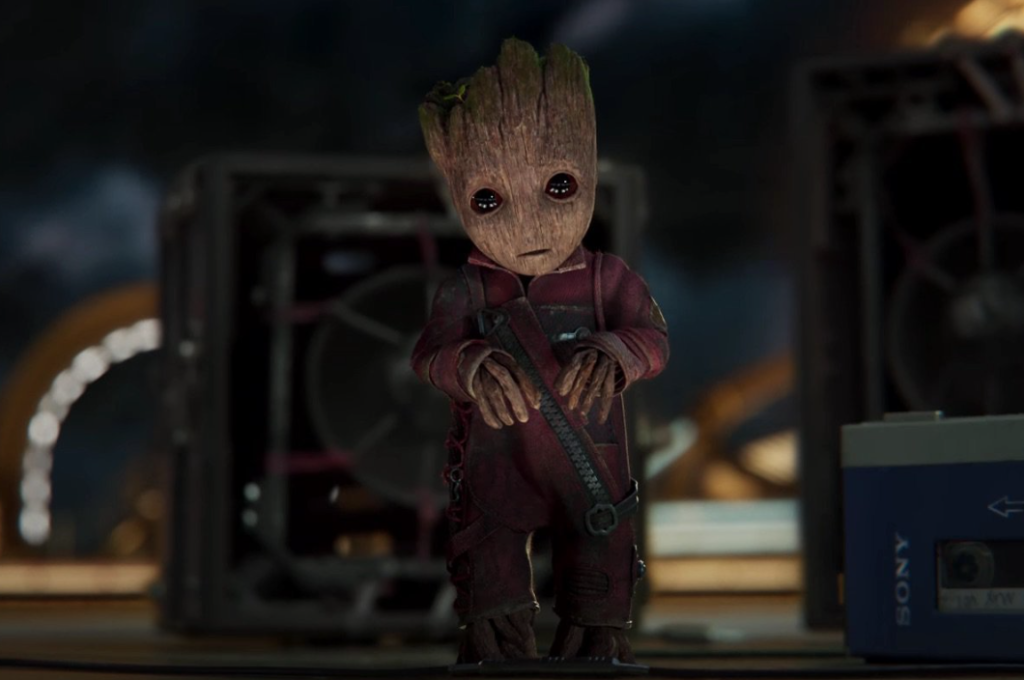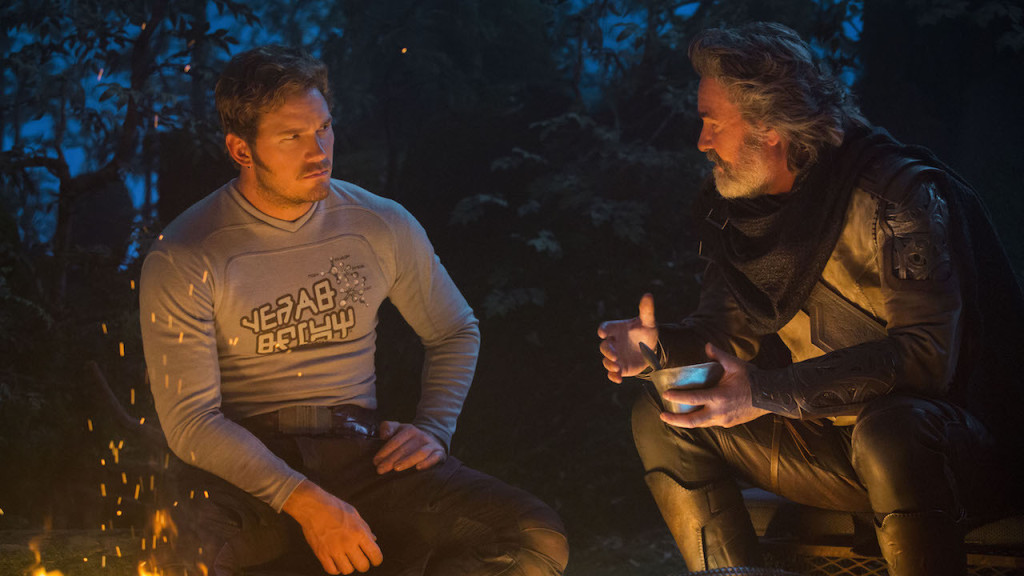Search Results for: F word
Genre: True Story
Premise: How the best-selling autobiography of all time, The Diary of Anne Frank, navigated an endless number of rejections to get published.
About: This is one of, if not the, most prestigious spec sale of the year so far. It sold to Fox Searchlight in January after a bidding war. The spec comes from the writing team of Samuel Franco and Evan Kilgore, who leapt onto the scene last year with their spec, Mayday 109, about a lesser known heroic tale from John F. Kennedy’s youth.
Writers: Samuel Franco & Evan Kilgore
Details: 107 pages
Today’s script is part of a new growing trend of specs about deeper weightier historical subjects. The trend is seen as an evolution of the biopic craze dominating the market these last few years. There are only so many cradle-to-grave (or young man-to-crowning achievement) stories you can tell before audiences rebel. So writers have adapted and are giving us true stories that are more contained, and as much about the story as the person.
The reason this is happening is because movie stars need vehicles. The blockbusters have become bigger than them, leaving their only route to prestige and notoriety the Oscars. How do you win Oscars? True stories about real people that resonate with audiences. Hence why this spec trend is growing.
Do I like this trend? Not really. At heart, I’m a sucker for a great idea born purely out of a talented writer’s imagination. But until one of you Scriptshadow readers blows the doors off of Hollywood with some killer fictional spec and start a new trend, I’m stuck with what we’ve got.
And, truth be told, when these scripts are good, they can be really good. I actually reconnected with Anne Frank’s diary recently. It itself is a masterful demonstration of the power of simplicity in writing. So I’m curious to see where Franco and Kilgore take this.
Keeper of the Diary follows two main characters. The first is Otto Frank, the father of Anne Frank. We meet Otto when he and his family are first found by the Nazis in the Annex, then when he’s released from his concentration camp a year later. Otto is devastated when he finds out that his wife and daughter, who were at a different camp, are dead.
Five years later and an Atlantic Ocean away, we meet 23 year-old Barbara Zimmerman. Barbara was set to marry a wealthy man and live a comfortable life when she realized she didn’t want to be comfortable. She wanted to make a difference. So she canceled the wedding and ran off to New York to be a publisher at the prestigious Doubleday & Co. Unfortunately, because she’s a woman, she’s thrown in the typing room and forgotten about.
Meanwhile, Otto has zero reason to live. Everything he held dear has been taken away from him. But that changes when he reads his daughter’s diary. He sees a side of his daughter he never knew, one who was painfully insightful and impossibly optimistic. After he finishes it, he has purpose again – he must publish his daughter’s work. He must bring this same hope to others.
Back in New York, Barbara, while looking for a manuscript in the discarded bin, comes across The Diary of Anne Frank, which had already been discarded by two of Doubleday’s most trusted readers.
Barbara decides to give it a shot and is transported by the writing. She falls in love with Anne and her message, and she, too, makes it her destiny to publish her work. There’s only one problem, the two men who rejected the manuscript are her boss’s personal assistants. It seems that men don’t understand what a little girl could possibly know about war.
Otto isn’t having much luck with publishers in Europe either. Everyone seems to think that the book is too mature for kids and too juvenile for adults. The only publishing house even considering publishing it wants Otto to cut out 50,000 words and pay to produce the book himself.
Will Barbara finally convince the bigwigs at Doubleday to give the manuscript a chance? Will Otto give up spreading his daughter’s message? We all know the answer. But what we don’t know is how it all came together, a question that Keeper of the Diary answers.
Let’s start with the first question that most people who’ve read this script will have – What’s up with the prose?? The prose here is thick. Like really really thick. If you told me to count how many times light was described reflecting off surfaces in Keeper of The Diary, I’d probably lose count.
What’s the deal, Carson? I thought you said we couldn’t write thick prose. Especially on the first page!
A couple of things are going on here. First, this is an historical weighty true story. And when you’re writing one of those, you have more leeway to thicken up the prose. It’s important when you’re writing about history to transport us there. That requires more detail, more description, more atmosphere. So I get it. Still, there was a TON of prose here. And I think the same thing could’ve been achieved with 20% less of it.
Another thing to keep in mind – and I know it’s something amateurs hate hearing – is that these guys had recently sold a big spec. This gives them a lot more leeway with reads. As an unknown, you simply don’t have that leeway, and therefore need to write for shorter attention spans.
Despite this, it’s important to keep in mind that there’s one rule that supersedes all others. If you do this one thing right, you can break every rule you want. And that’s write a great story. If your story is interesting, if it has great characters and suspense and mystery, and you’ve managed to create a big question (Will the diary get published??) that we want answered, that’s the most important thing.
To help drive this point home, imagine a flying saucer came down and beamed some guy into its ship then flew away. Then imagine you showed up literally one minute later and had missed the whole thing. It wouldn’t matter if the least qualified person to tell you that story – a drunk homeless man slurring every word – you would still be riveted by his story.
However, if you happened to run into JK Rowling at Starbucks and she began to tell you about a woman a second ago who almost spilled her coffee, you’d be like, “That’s great J.K. But I gotta get to work now.”
Keeper of the Diary was a great story. What’s so great about it is it doubles up in the underdog department. Underdogs are obsessively likable. Even more so if their cause is noble. Even more so if they’re good people. And that’s the case with both Otto and Barbara. These two are basically impossible not to root for. And when you’ve got that, you’ve got the foundation for a great script.
The script also does a clever job of integrating dramatic irony. We, of course, know that The Diary of Anne Frank is one of the most important books ever published. So whenever somebody tells our heroes “no” or that the book “sucks,” we’re screaming through our screen: “Are you guys f&*%ing idiots!!??? This is the freaking Diary of Anne Frank! The most important autobiography ever!”
I call this “breaking the fourth wall” and it’s a clever way to approach well-known true stories because it engages the audience’s knowledge of the event and, sort of, uses it against them. James Cameron did the same thing with Titanic. We all know the ship is going to sink. So every time some smarmy oil magnate says it’s unsinkable, we’re screaming, “No it isn’t! Slow the damn thing down!”
Above all, Keeper of the Diary does the thing I always tell you to do: FIND A UNIQUE ANGLE INTO THE STORY. Had they simply adapted Anne Frank’s diary, it probably still would’ve been good because it’s a fascinating story. But it wouldn’t have been FRESH. And that’s why I’ll continue to bring this up whenever I see it. One of the biggest mistakes rookie writers make is they don’t find a fresh angle into their stories. They’re always giving us retreads of their favorite movies or favorite genres. Find that unique point-of-view and tell your story from it. It makes a huge difference in setting your script apart from the pack.
You’re going to want to bring your tissues to this read. It was really good. And despite debuting in January, it will probably finish atop this year’s Black List.
[ ] What the hell did I just read?
[ ] wasn’t for me
[ ] worth the read
[x] impressive
[ ] genius
What I learned: You can break rules if you offset them by more important rules. In our opening page, the writers do something I tell you not to – provide a wall of text. However, they also follow a far more relevant rule – SOMETHING IS HAPPENING. The Nazis are charging towards the secret Annex and are about to find Anne Frank and the other families.
There’s an old saying in baseball. “You can’t win the pennant in April. But you can lose it.” For the uninitiated, a baseball season is 162 games long. The first month of the season is April. And what that saying means is this: Even if you win every game in April, you haven’t won the pennant. You still have 140 games to go. BUT. If you lose 17 of your first 20 games, no team ever comes back from that. You’ve ensured that your team is screwed.
The same thing can be said for a screenplay. You can’t write a great screenplay in one page. But you can prove that you’ve written a bad one. This is why, when a reader or producer says they read “one page of a script” before “throwing it away,” it’s not as asinine as it sounds. There are lots of things a writer can do on that first page to kill a script. And that’s the topic of today’s article.
Let’s get the obvious out of the way. Make sure there are no misspellings on your first page. No misused words. No grammatical errors. No screw-ups when it comes to tense. And make sure the formatting is error-free (easy if you have reputable screenwriting software). If there’s a single spelling or grammar mistake on the first page, I don’t bail on the script, but a huge red flag goes up. If there are two, I know the script is bad. EVERY. SINGLE. TIME. That’s right. In the 7000+ screenplays that I’ve read, when there were two errors on the first page, the script was bad 100% of the time. So don’t make that mistake.
The above should be a given. But the rest of this stuff isn’t. Some will depend on your skill level and the amount of time you’ve put into the craft. But don’t let that deter you. This is what I call the “weeding out” process. Those screenwriters who don’t have the stamina to master the craft will eventually drop out during this phase, leaving you with less competition and a better chance to succeed.
ACTIVE VOICE
Writing in the active voice is part of the unique writing-style of this medium. Because it’s so specific to screenwriting, when you don’t see it, you know the writer’s a newbie. “Active Voice” means conveying things as they happen. The idea is, we’ll be seeing it happen on screen, so you should write in the way that it will be seen. “The man cuts the rope,” as opposed to, “The man is cutting the rope.” There is some leniency here, as there will be times when you want something to happen in the moment: “He starts cutting the rope.” But you should be using the active voice 95% of the time.
SENTENCE CONSTRUCTION
The style in which you write is how you distinguish yourself as a writer. However, there is a basic truth that must be present in every style. Your sentences must be readable. They must be smooth and easy to digest. If your sentence construction is clumsy, overlong, too descriptive, wrought with pretentious vocabulary, or confusing, people won’t want to keep reading. To some degree, subjectivity comes into play. A writing style that is pleasing to some may not be pleasing to others. But there’s a mantra here that should serve every screenwriter well: Keep your writing simple and easy to read.
Here’s an example:
He watches Vivian in the adjoining kitchen as her arthritic fingers bring a nub of a cigarette to her angry lips.
VS.
With his mother in the kitchen, he focuses on her, from which he notices her cigarette in her fingers, which are arthritic, but also angry, and which twitch in tiny angry spurts every time she lifts the cigarette to her mouth.
The first is a sentence from the opening page of “Palmer,” a script I reviewed a couple of weeks ago. The second is a butchered version of that sentence which is the kind of thing I’ll see a lot of in amateur scripts. You’ll notice that, technically, the sentence is fine. But it’s overwritten. It’s redundant. It goes about describing things in a roundabout way (“With his mother in the kitchen…”). The first sentence is clean and direct. There is no confusion when you read it. And that’s the important lesson here.
GENERIC WRITING
The other kind of writing you want to avoid is the opposite of the above: GENERIC writing. This is when the writing has no style or character at all. Writing needs some personality. And as long as you don’t go overboard with that personality, you’re good.
Joe opens a coke. He drinks it. He finishes it. He throws it in the garbage can.
If you give me an entire script of that, I’m going to kill myself. Here’s a line from the first page of Juno…
She swigs from an absurdly oversized carton of juice and wipes her mouth with the back of her hand.
There’s a little more color here. A little more style. But not TOO MUCH style. Just enough to create an image in your head.
HUGE PARAGRAPHS (AKA “WALL OF TEXT”)
If I see a first page with a TON of description, I’m on high alert. That means any paragraphs that contain 5 lines or more or pages that have multiple 4-line paragraphs (four or five in a row). This isn’t a script-killer. And if the writing is pleasing and smooth, I’ll look past it. But more often than not, this is an indication that a) the script is overwritten and will be a chore to read, or b) this is a newbie screenwriter who doesn’t understand that “less is more” when it comes to description.
DIALOGUE
Since we don’t know the characters yet, I don’t put a whole lot of stock in first-page dialogue. For example, if a character has really boring dialogue, that may be because he’s a really boring character, something I’ll find out once I keep reading. But there are one of two criteria I want met with first page dialogue.
1) I either want to notice that the dialogue is really good.
OR
2) I don’t want to notice the dialogue at all (it’s so natural that it’s invisible).
If I’m reading the dialogue and it’s extremely on-the-nose (“I hate that you abused me when I was a child, father!”) or doesn’t sound anything like how real people talk (in a drama script: “How are you? I haven’t seen you in so long.” “I contracted cancer recently. How are you?”), I know the script is in trouble.
SOMETHING HAPPENING
Okay so, everything we’ve gone over so far is the technical end. The other thing you have to nail in your first page is that something needs to be happening to grab us, to pull us in and make us want to keep reading! What does that mean, “happening?” It means one of these four conditions must be met:
1) Jump into the story immediately.
2) A great intro for your hero.
3) A teaser.
4) A story is told.
Jump right into the story – The first option is the easiest. Introduce your character as soon as the story is ready to begin. So in the example I used above, from Palmer, that first page has Palmer being released from prison. It’s not big. It’s not flashy. But we’ve jumped right into the story. Had we spent 15 pages hanging out with Palmer in prison or fuddy-duddying around the neighborhood before meeting our main character, that wouldn’t have worked. Unless you used one of the remaining three options…
A compelling hero intro – If you’re not going to jump into the story, you better jump into your character. Give us something that makes us interested or excited about your hero. Put them in a scenario that tells us who they are. The classic example of this is Indiana Jones going into the cave. More recently, Deadpool. Juno is a good example. The first Star Trek reboot. This option is a great choice if you’ve got a flashy main character. Throw him and all his glory at us immediately.
A teaser – If your story starts slowly, consider adding a teaser. The cool thing about teasers is they don’t have to linearly line up with your story right away. You could start with a scene from 200 years ago. You could jump to the end of the movie first, showing your main character dead. You can show a drug deal between two characters that gets ugly, despite it seemingly having nothing to do with your story yet. A teaser is an easy way to grab us right away. The Sixth Sense, an otherwise slow movie, starts with an intense break-in from six months ago where an old patient shoots our hero.
A story – This is the hardest thing to do, but the thing that best conveys you’ve written a good script. Write a first scene that’s a mini-movie in itself. Construct a scenario that has mystery or suspense or dramatic irony. Give it conflict or an unexpected twist. Make sure it has a beginning, a middle, and an end, just like a movie. The best example of this, in my book, is the opening scene in Fargo (the movie) where a husband meets two criminals who he’s hiring for an undisclosed crime. There’s mystery (we don’t yet know what he’s there for). There’s conflict (the other guys are pissed off that he made them wait for an hour and he won’t acknowledge it). There’s suspense (we have no idea what’s going to happen here. It could go any way). And an unexpected twist (they reveal that he’s hiring them to kidnap his wife). That last piece is what sets this scene apart from so many others. He’s not hiring them to kill a drug dealer. He’s hiring them to kidnap HIS WIFE. That bizarre request is what makes us want to watch the rest of this movie.
It should be noted that the first page may only carry a portion of the above four options. You don’t have to begin and end the scene in one page. But the point is, that first page will have a purpose, since we’ll see that it has a clear plan. Which means we’ll want to turn the page. And in the end, that’s the goal of screenwriting. To make the reader want to turn the page. As soon as they stop wanting to turn the page, your script is dead to them. And that process begins on the very first page of the script.
Genre: Action
Premise: (from the Black List) An underwater earthquake decimates a research crew working at the bottom of the Mariana Trench, leaving two survivors with limited resources to ascend 35,000 feet and reach the surface before their life support runs out.
About: This script finished on the 2015 Black List with 6 votes. Newbie writer, Pete Bridges, would later sell his second script, The Fall, to Amblin Entertainment. Not bad. Not bad at all.
Writer: Pete Bridges
Details: 104 pages
Plot.
Character.
Every time you come up with an idea, it’s going to be heavily weighted one way or the other. So you have a movie like The Force Awakens, plot-heavy with every character needing to do things and other characters trying to stop those things. Goals, stakes, urgency galore.
Then you have a movie like Manchester by the Sea. Almost no plot. A character-focused script if there ever was one. With that movie, it’s more about emotional beats, introspection, overcoming inner obstacles.
One of your jobs as a screenwriter is to identify which kind of idea yours is. Is it a plot-heavy idea? Or a character-heavy idea? Once you have your answer, form your plan of attack. And this is how that plan of attack should go:
If it’s a plot-heavy concept, YOUR PLOT MUST BE FUCKING AWESOME. This is what your idea is selling. The plot. So that plot better be something to write home about. If it’s a character-heavy concept, same thing. YOUR CHARACTER DEVELOPMENT and CHARACTER EXPLORATION better be the kind of thing that makes other writers shiver in their boots because they know that they can never touch your expertise on the character front.
The point is – whatever you’re selling your script on, that thing better be great.
Now here comes the second part. And this is the one most screenwriters screw up on. You still have to do a solid job in the other department. So if you have a plot-heavy script, you still need to spend some time making the characters compelling, going through tough inner obstacles, and having problems with one another.
Same with a character piece. Don’t forget you still need to add some plot.
Cause here’s the thing, see…
If you only focus on the side that you’re selling, your script is going to feel thin. Who here has watched an action movie or a thriller where you didn’t feel any emotion towards the characters? Or who here has watched one of those aimless character pieces that’s all about feelings and crying but GOES NOWHERE? That’s what I mean by thin.
The reason I don’t review scripts like Resurface as much anymore is because the writers who write them make this mistake all the time. They have this plot-heavy premise, which inevitably leads to them making both mistakes. The narrowness of the plot means it’s going to be predictable. And because it’s so plot-focused, the characters are going to be underdeveloped.
In that way, an idea like Resurface is fool’s gold. It seems so movie-friendly. And yet it has so many traps it can fall through. And I don’t even fault the writers of these movies for falling into these traps. While I was reading this, I thought, “You know, I probably would’ve made a lot of these same choices.”
The difference is, I know after reading a lot of these scripts how dangerous they are, so I know not even to attempt them.
This goes back to yesterday’s post where you’re always looking to find that angle into an idea that’s fresh. Because fresh angles create fresh scenarios. You’re not burdened with going through the “been there done that” checklist.
For example, with Resurface, you know you’re going to have a “losing air” situation. I’m not saying that’s a bad thing. But when the audience already knows your dramatic scenarios before your film has begun, you’re at a disadvantage. The writer should always be ahead of the viewer, unless he wants them to be ahead of him.
Resurface follows Josh Strand and Hannah Bradford, co-workers with way too much sexual tension, working in a submersible in one of the deepest parts of the ocean. They’re joined by several other submersibles, finishing up a project they’ve been hired for, when there’s an underwater tectonic shift. We’re talking the sea-bed shifts an entire mile.
Everybody’s sub is damaged in the quake and, after the subs succumb to the damage one by one, Josh and Hannah find themselves the only ones left. And it’s not looking good. Their sub doesn’t even have power. They’re able to use a backup battery to get their sub to the nearby supply sub, and transfer everything into there.
The problem is, the supply sub wasn’t made for people, requiring Josh and Hannah to hack the system and turn this puppy into something that can take them to the surface. As you can imagine, that journey is fraught with a dwindling air supply and an unreliable GUI.
Meanwhile, Josh and Hannah try to make the best of the situation, slowly transforming from sarcastic jokes to expressing their true feelings for one another, which, it turns out, are love. Let’s just hope that love has the chance to last a lifetime.
I give credit to Bridges for doing the best with what he had. But I was so ahead of this story. Which is what I was afraid of to begin with. That the logline was the movie. The logline needs to convey the main conflict in the movie. But you then add twists and turns to keep things unexpected. There was nothing unexpected here. They encountered technical obstacles to getting to the surface and they talked to each other. That was it.
A good movie to compare this to is The Martian, as that script had a similar setup. Here’s what The Martian did that Resurface didn’t, though. IT GOT SPECIFIC. When you have a limited premise, specificity can become your best friend. Find things or research things that you know about that the audience doesn’t. That way, you’re feeding them new information. New information FEELS FRESH.
The perfect example of this is the potato growing sequence in The Martian. We don’t know anything about growing potatoes. It’s actually a pretty weird concept in the context of a movie about a guy stranded on Mars. But that’s exactly why it worked. It was UNEXPECTED, unique, different. And I know I keep harping on that word lately. But it’s so important as a screenwriter. If you’re not giving us unexpected things, then we know what’s going to happen in your story long before you show us.
On the character front, a screenplay like this is a huge challenge. Lots of screenwriters see the beginning of this idea, imagine two people in a sub, and think, “I’ll just come up with things for them to say to each other.” But them talking to each other is the whole movie. It will take up 100 minutes of the running time. It can’t just be “people talking.” It’s got to be a compelling situation between the two that evolves, that reveals, that changes, that’s UNEXPECTED.
And while I didn’t think Josh and Hannah’s situation was very compelling, I don’t pretend to know what would’ve worked better. You could’ve had two people that hated each other. But that’s kind of cliche. You could’ve had them be a married couple on the outs, but that’s cliche. You could have had them be divorced, forced into this sub by their boss. But that’s cliche.
This is the stuff that drives me crazy about screenwriting, is that there are a lot situations that have limited answers. I mean I’ll kick the question down to you guys. What would you have done with Josh and Hannah to make their storyline compelling? Because I learned early on that putting two people in a small trapped space for 100 minutes is a lot harder than it looks. What the f&*% are they going to say to each other for 2 hours?
And for that reason, I couldn’t get into Resurface. With that said, the writing is solid. The plot moves quickly. And there’s a bigger story here. With this script, Bridges got noticed. Once you get noticed, you’re in the game, and your odds of selling something increase tremendously. Bridges used the heat he got from Resurface to later sell The Fall to Steven Spielberg’s company. So it’s safe to say, everything worked out for the best.
[ ] What the hell did I just read?
[x] wasn’t for me
[ ] worth the read
[ ] impressive
[ ] genius
What I learned: Remember to add ticking time bombs to not just the entire plot, but to individual scenarios. There’s a scene early on in the script where they’re moving from the broken sub into the supply sub, and a battery is leaking so badly, that the whole thing could blow up in an instant. It added a nice bit of tension on top of what was already a tense scene. That’s good writing.
Genre: Sci-fi
Premise: The guardians of the galaxy get split up when leader Peter Quill meets his estranged father for the first time, who promises Peter power beyond his wildest dreams.
About: Baby Groot!
Writer: James Gunn
Details: 136 minutes
On the surface, Guardians 2 has all the things required for summer blockbuster success. Action, humor, special effects, character development, at least three-dozen uses of the word, “family.”
So why did I leave the theater with a sad emoji face? Especially when the movie started off with one of the best blockbuster scenes ever? I’ll give you a hint. It has to do with screenwriting. So crippling were these screenwriting choices, I want to make sure I highlight all of them so that you guys never make these same mistakes yourselves.
For those who haven’t seen Guardians of the Fast and Furious, it follows our space-faring guardian group, Peter Quill, aka Starlord (Chris Pratt), Rocket Raccoon, Gamora, Baby Groot, and Drax, after they steal some next-level batteries from a group of Gold People. Afterwards, the Gold People hire mercenaries to chase the Guardians, which triggers a group split-up.
On the one side, Rocket Raccoon and Baby Groot are captured by the mercenaries. On the other, Starlord, Ghamorra and Drax, meet some dude, Ego, who claims to be Peter’s dad. Ego takes them to his utopian planet, tells Peter all about his past, and lets him know that this is all his, too, if he wants it. Life is good.
We bounce back and forth between the two storylines. Rocket and Baby Groot trying to escape the mercenaries, and Ego explaining their family history to Starlord. We gradually become suspicious of the all-too-perfect Ego, until we realize he wants to rule the universe. Like, literally. The ENTIRE UNIVERSE. Starlord will have to choose, then, between his real family (Ego) and his adopted one (The Guardians).
Guardians 2 starts out so damned good, I thought I was in for the best movie of the summer. The opening scene has the Guardians awaiting a giant blob monster they’ve been hired to kill. When the monster finally arrives, writer-director James Gunn makes the genius choice to not let us see the Guardians battle it. Instead, we focus on Baby Groot as he dances away on the sidelines.
Occasionally, we see bits of the battle spill into the background (Drax being hurled through the air, for example), but we never really see the fight. I can’t tell you how much I loved this scene. It wasn’t just an interesting choice, but an ingenious commentary by Gunn on the state of the modern blockbuster. He’s saying we’ve reached a state whereby we’ve seen so many giant monster movie battles, that we don’t even care if one happens off-screen.
And to Gunn’s credit, he sticks with that philosophy throughout the film. Gunn set out to make a character piece dressed in blockbuster clothes. However, in order to make ‘character’ compelling, you must make it entertaining. We don’t get that here. And there are a whole lot of reasons why.
The first is that the second act sucks. And when I say sucks, I mean it’s one of most boring second acts in recent memory. The reason for this is that Gunn chose to create TWO passive plotlines. The first plotline is people wandering around a planet talking about life (boring). And the second is characters being held captive (slightly less boring). In both instances, we’ve got people sitting around talking a lot. Not a smart decision for any film, but especially a summer blockbuster.
If you’re going to have a slow storyline, you need a more energetic storyline to contrast it against. For example, in Empire Strikes Back (another direct sequel), we have the slow moments of Luke training contrasted against the Empire’s intense pursuit of Han Solo. And even the “slow” storyline in that equation, Luke’s training, was still exciting and fun. It’s all slow all the time throughout Guardians’ second act. That’s because of another bad choice Gunn made.
**SCREENPLAY KILLER ALERT!!!**
The main problem with Guardians of the Galaxy 2 is that its main character is the least active character in the movie. All Starlord does is follow people around. I don’t think he made a single choice in the first two acts. To create a main character this passive is a screenplay killer.
Because when you write a passive main character, you’re shooting yourself in the foot twice. First, passive heroes aren’t interesting. So you’re putting a boring person on screen for the majority of the running time. Secondly, if your main character isn’t active, then he’s not driving the story forward. So your plot suffers as well.
Look at Raiders. Look at how ACTIVE Indiana Jones is, and how his actions propel the plot forward every step of the way. That’s the power of a strong active hero.
I’m surprised that a seasoned writer like Gunn would make this mistake. My theory is that he liked his toys too much. He liked the quote-machine Rocket, the cute-machine Groot, and the goof-machine Drax. He figured that any slow passages would be alleviated by this trio’s zany comebacks and wily antics. And they are, to a certain extent. My favorite moments included Groot (as well as bad-guy-turned-good, Yondu). But that kind of stuff only works for so long. In a 2 hour movie, you need your ‘slow drama’ moments to be just as entertaining as your ‘fast drama’ moments.
This speaks to a problem a lot of writers have, which is they think “character-driven” means slow scenes where people talk about feelings. Watching Peter walk around for 40+ minutes confused about his daddy-issues isn’t entertaining. For character stuff to work, there needs to be drama, tension, conflict, suspense. And in blockbusters, you want most of your character work to play out via action and choice.
Take the current season of Fargo, which itself focuses on family. In the first episode, a fuck-up loser comes to the home of his successful brother to ask for money. There are no discussions about feelings, just the tension born out of a lifetime of conflict between these two brothers. This is how you explore character through action. We learn so much more about these brothers’ relationship through this tense conversation than had we sat around with them while they discussed their feelings about one another.
But let’s take that a step further. In the second episode of Fargo, the brothers DO have a direct discussion about their feelings. The fuck-up brother asks the successful brother if he’ll come outside to discuss a truce. The two get into some heavy thoughts about their relationship and ultimately apologize.
BUT.
But it’s all a ruse. It’s a setup so the fuck-up’s girlfriend can sneak inside the brother’s house and steal something from him. So we’re cutting back and forth between them talking and her looking. This makes what would normally be a boring scene centered around feelings become a dramatically suspenseful one. Contrast that with Guardians, where it seems like there were 50 scenes of Ego (Peter’s dad) walking Peter around the planet talking about life and family and exposition. It’s really lazy, and therefore, boring.
The funny thing is, the one area where Gunn DID do this right – Gamora’s ongoing battle with her sister – didn’t register because Gamora was the least interesting character in the movie. So we didn’t care. This is another lesson. Give your big conflict relationships to your best characters, not the ones we don’t give two shits about.
I think Gunn had a four-prong attack for this screenplay he thought would be enough to make it work. First, theme. He believed the theme of the family you’re born into versus the family you choose would carry more weight than it did. As I’ve said here before, if you’re focusing more on getting your theme right than you are entertaining the audience, your script is screwed. Second, by splitting the group up, our need to see them get back together would be powerful enough that maybe we wouldn’t notice the slow pace. Third, he thought the eeriness of Ego would create more curiosity, making that section more suspenseful. And finally, he figured his cute toys could help distract from any of the script’s weaknesses.
The thing is, if you don’t have an active main character, especially in an action movie, it doesn’t matter what else you do. You’re putting yourself in a Houdini restraining suit every time you sit down to write. I don’t know why you would attempt that, and it proved to be the narrative choice that doomed Guardians 2.
[ ] What the hell did I just watch?
[x] wasn’t for me
[ ] worth the price of admission
[ ] impressive
[ ] genius
What I learned: You can’t fix slow sections of a screenplay by adding additional cuteness and funniness. Yet another Baby Groot dancing scene will never solve a boring narrative. If you have slow sections in your story, there is something wrong with the foundation of your screenplay. Find out what’s wrong and those sections will fix themselves. Again, had Peter Quill been the active character driving this narrative, a lot of the slow sections in the script would’ve disappeared.
Commenter Challenge: I would love for commenters to list any good PASSIVE main characters in action or blockbuster movies. I think we did this once before but I can’t remember any good ones. How bout you guys?
If you’d like to submit your script for an Amateur Friday review, send your title, genre, logline, and why you think it deserves a review to carsonreeves3@gmail.com, along with a PDF of the script!
Genre: Action/Thriller
Premise (from writer): When a young CIA trainee, working low-level assignments in Europe, is framed as a traitor, he discovers he holds the key to preventing global warfare and must outwit both ‘The Agency’, and the terrorist cell that hunts him, before they can incite World War 3.
Why You Should Read (from writer): I don’t have much to say in this section. I would rather the logline and the script speak for itself rather than trying to sell it to you. I will say my tastes are very commercial in nature as are all my stories. I love action, suspense and excitement, and always try to imbue that in the read. I hope it’s something you like. Thanks to everyone for checking it out.
Writer: Dax Messer
Details: 102 pages
I’m gearing up for some Guardians of the Galaxy madness this weekend, and it got me thinking. Everybody knows this movie is going to make a trillion dollars. In fact, everybody knows exactly how much money every movie is going to make these days.
That’s because opening weekends are paid for. The studios use an algorithm that if they put ‘x’ amount of dollars into advertising they will get ‘y’ return at the box office. And that makes the box office thing, well, not as fun anymore. There used to be a time when you didn’t know what was going to happen. And it was exciting. Now it’s just, “I’ve seen 10,000 commercials for Pirates of the Caribbean so it will make 130 million dollars this weekend.”
However, streaming services are changing that. They’re actually bringing back the days before box office was reported and you found out about a movie (like The Godfather, for instance) because people saw and liked it. There was no number that told you whether something was worth of watching or not. 13 Reasons Why and Stranger Things are great examples. Nobody has any idea how many people have seen these shows. But they loved them, so they told people about them, and the shows’ successes evolved organically from that word-of-mouth.
As Netflix and Amazon delve further into the feature world, it’s only a matter of time before that starts happening there as well. Which bring us to The Operative. The Operative seems tailor-made for the new streaming model. It’s not too big. It’s not too small. It’s right in that mid-budget sweet spot that Netflix seems to be loving right now. Let’s see if it delivers.
33 year-old Alex Sagen (cool character name!) just failed The Farm field exam, which means he doesn’t get to become a CIA field agent. But the intelligence agency still likes Alex’s spark, particularly agent Jennifer Monroe, who encourages Alex to take a desk job in Paris, where, if he’s lucky, he might get to interrogate a few terrorists.
Alex reluctantly takes the gig, and, while out of the office one day, gets the heart-stopping news that the office was raided and 17 agents were killed. The terrorist behind the raid, Reza Konesh, is quickly captured, and since there are no longer a ton of agents to choose from, Alex gets the gig to transport Konesh to an interrogation house outside the city.
Once they reach the outskirts, however, their caravan is attacked. Konesh is accidentally killed by his own men, while Alex and another agent escape. But not without suspicion from headquarters. Asshole senior agent Jonathan Brubaker is convinced that Alex is a mole and that he has something to do with this.
With his own agency now wanting to take him down, Alex must figure out what Konesh was up to. So he goes to the morgue where Konesh’s body is being held and locates a microdot on him. He later finds out that dot contains information about a secret U.S. satellite capable of killing millions. Alex will try and use this information to get back into the CIA’s good graces. But as he soon learns, the CIA might be involved.
Before I begin my analysis, I just want to say that this script NAILED its structure. Probably one of the best structures for an amateur script I’ve seen in a year. Messer deserves big props for that.
However, the heart and soul of the script need work. And that’s the main issue I want to talk about.
Look. I get that the bar for originality in the spy genre is low. Like “I need a metal detector to find it” low. Spy-heads want their spies. They want their car chases. They want their espionage. And that’s it. They’re good after that.
And if you’re judging The Operative by that criteria, it delivers.
But if we’re judging this on The Scriptshadow scale, I found the concept and the execution of The Operative to be way too generic. Everything from the plot to the characters to the twists to the dialogue were way too familiar.
Take the fact that we have a micro-disc in The Operative. And that disc has plans for a weapon on it that could kill millions. I read scripts with micro-discs and weapons that kill millions every Sunday. I mean, come on. We’re not even going to try and improve on that trope?
And then there’s the dialogue. Here’s an exchange between Alex and the woman he’s secretly seeing at the agency, Maria, after she survived the terrorist break-in…
Alex: “What happened to you?”
Maria: “I thought… I thought I was going to die in there.”
Alex (checks her body): “You’re not hit. You’re fine.”
Maria: “I’ve never… experienced anything like… My god…”
Alex: “Are you going to be okay?”
Maria: “Yes… I’ll be okay. (beat) I can’t stop shaking.”
Alex: “You’re just in shock, that’s all. It’ll pass. You’re going to be just fine.”
Now, when you look at this dialogue, there’s nothing technically wrong with it. The problem is that it’s just so achingly generic. From how the interaction plays out to which words are used is too expected. The dialogue has no personality, no life of its own.
For example, another option would’ve been for Alex to see that Maria was in shock and used a couple of jokes to bring her out of it. But we never get anything like that here. Everyone speaks as if they’re a spy-novel automaton reading lines off a spy-lines teleprompter.
We also get lines like, “Just another day at the office,” “Who the hell are these guys?” “I want to hear answers, not excuses.” “Please, you’re scaring me.” “That’s what I intend to find out.” “It’s been a long night.” “They’re dead. They’re all dead.” “He’s been off the grid for almost a decade.” “God help us.” I mean there wasn’t one line in this script that I hadn’t either heard before or felt like I’d heard before. This is unacceptable if you want to compete on the big league level. You have to come up with your own stuff, not rely on lines from past spy movies.
What this script needs is an “Originality Rewrite” from the top down. Concept, plot, character, dialogue. Everything needs to be upgraded in the originality department. And there’s really only two requirements for originality. The first is the desire to be original, which you have total control over. The second is your imagination – how capable you are of coming up with original ideas. This you don’t have control over. Some people are imaginative and some aren’t (and most of us are somewhere in between).
But if you can execute the first, just the fact that you’re not settling for average (plot points, characters, dialogue, etc.) means you’ll be more original than most, boosting a generic idea like this into something exciting. Remember, 13 Reasons Why could’ve been set up as a 90210 clone. Instead, it rearranged the formula to come at high school drama from a different lens. That’s originality. And that’s the standard you’re being held to in Hollywood.
Script link: The Operative
[ ] What the hell did I just read?
[x] wasn’t for me
[ ] worth the read
[ ] impressive
[ ] genius
What I learned: The whole point of constructing a building with superb structure is to then populate it with heart and soul. Nobody builds a house to then decorate it with generic rooms and generic furniture. They do it so they can populate it with their own unique personality. The Operative had the structure but it didn’t have the personality, giving the script a lifeless feel. Let’s take care of that moving forward.








